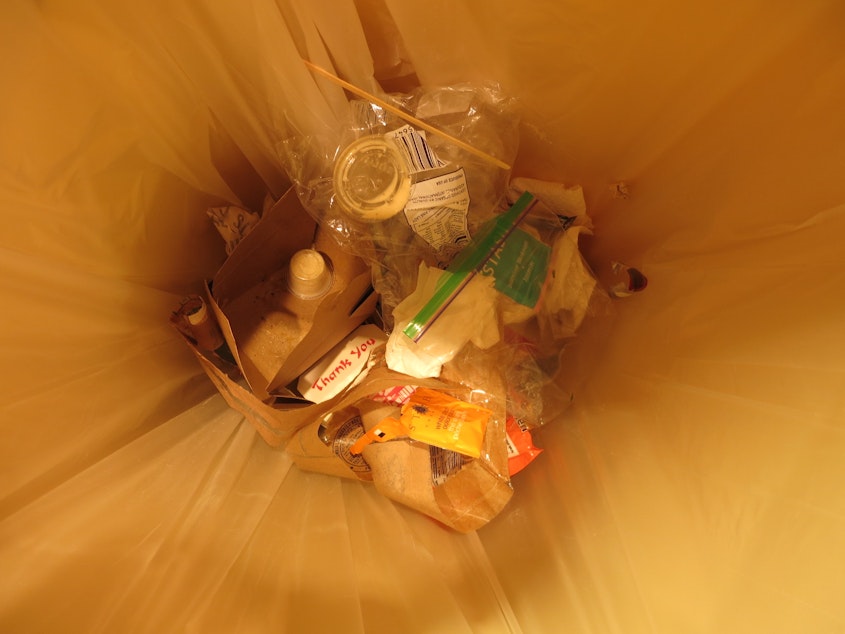King County’s landfill wants to expand, but neighbors are saying no

At a King County Council meeting Wednesday, dozens of local residents spoke against the proposal to expand its landfill, Cedar Hills, about ten miles east of Renton.
It takes waste from 37 cities, not including Seattle. Solid waste leaders say the landfill is running out of space.
At a special County Council meeting in Renton Wednesday, long-time neighbors say the landfill has been running out of space for decades. Instead of closing, it keeps expanding.
“We’re tired of being the dumping grounds of all things toxic and smelly,” neighbor Tammera Widell said, to loud applause.
Sponsored
Widell lives a few miles away from the landfill and a Cedar Grove compost facility and, like many, said every day she prays for the wind to change to push the ever-present stench away.
The council is also reviewing two other options: Ship the garbage out of state – like Seattle does – or build a power plant that runs on the waste.
“I think it’s time to wrap up the landfill in southeast King County and move on to something else, something better,” Councilmember Reagan Dunn said to applause.
The county’s solid waste head said the landfill will run out of space by 2028.
“It’s not realistic that we could site, design, build and begin operating a waste to energy plant within that period of time,” Solid Waste Division head Pat McLaughlin said.
Sponsored
He’s in favor of expanding the landfill as an interim solution (and for the last time) as the county works on the long-term fix.
“We take the safety of our neighbors and our employees and the environment really, really as a top priority,” McLaughlin said.
At Wednesday’s meeting, speaker after speaker expressed a severe lack of trust in McLaughlin’s division, data and reports. Many even offered suggestions on what they thought were better methods to calculate the carbon footprint of each option.
Dave Vogel, who lives against the western side of the landfill, held up a biohazard bag stained with human blood that he said an eagle had picked up at the landfill and deposited on his land.
“How would you like to go out to do some gardening and find this in your yard?” Vogel said.
The expansion needs to be approved by county lawmakers, cities and the state; that’s not likely until at least late this year.




